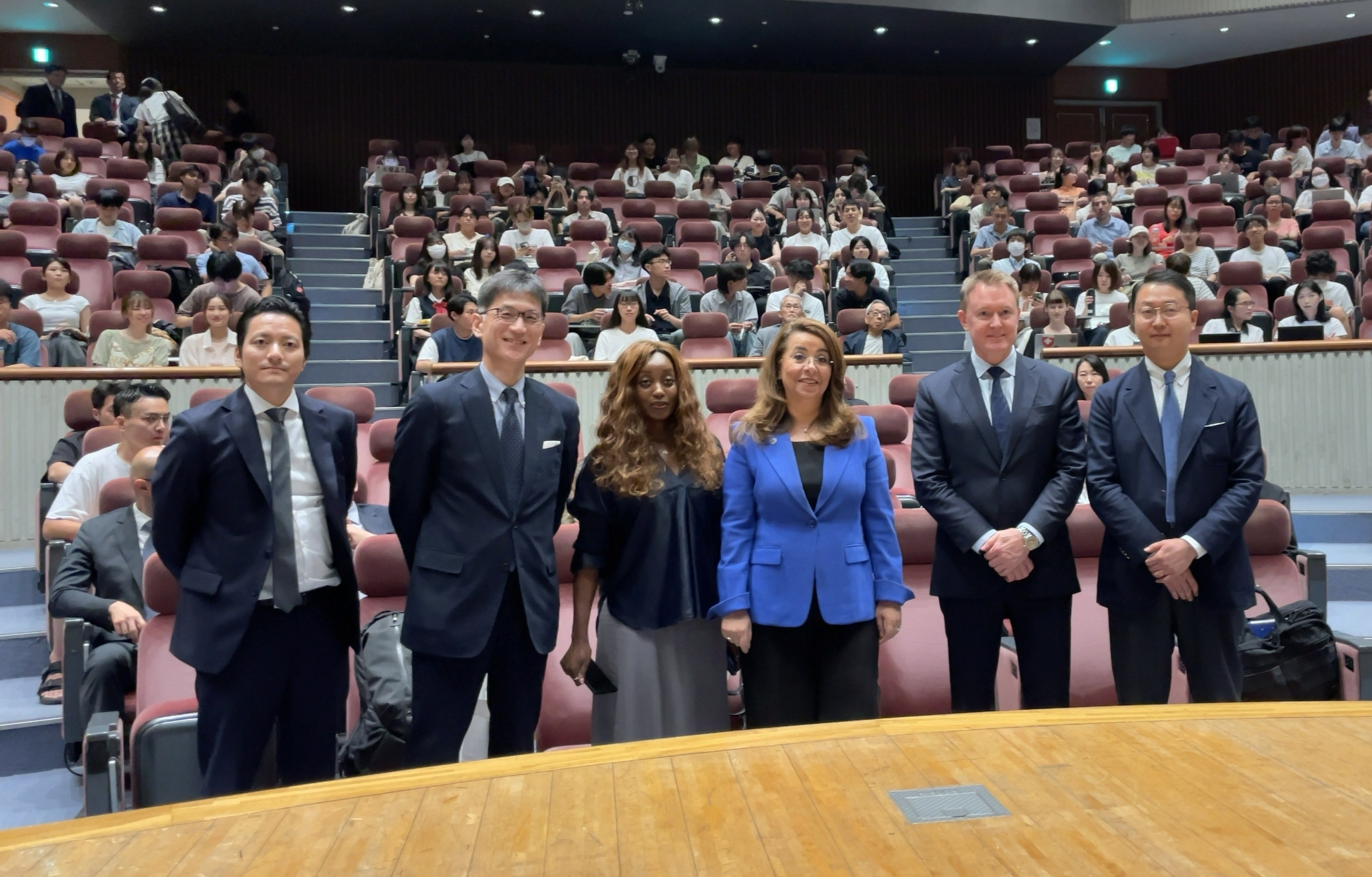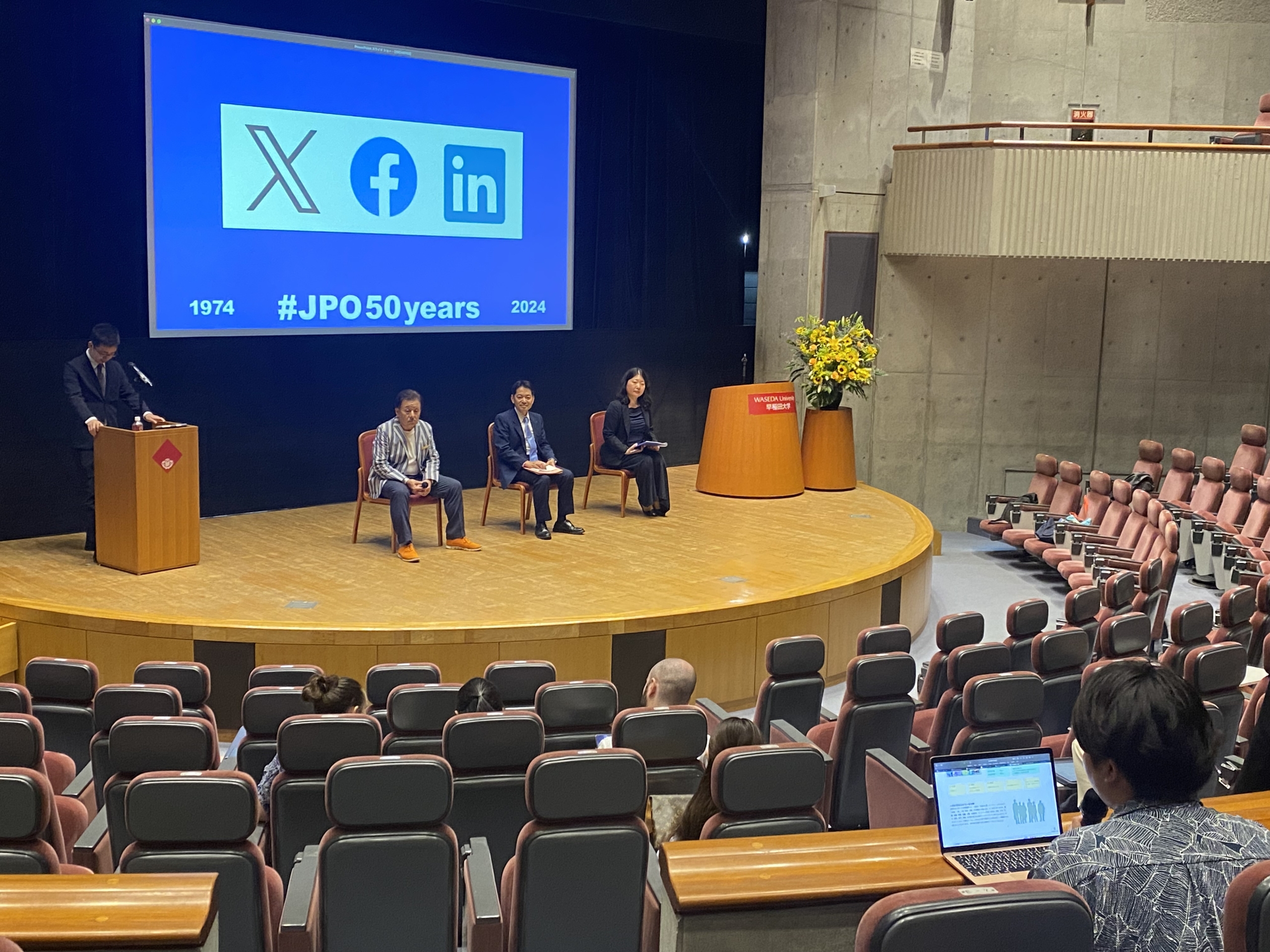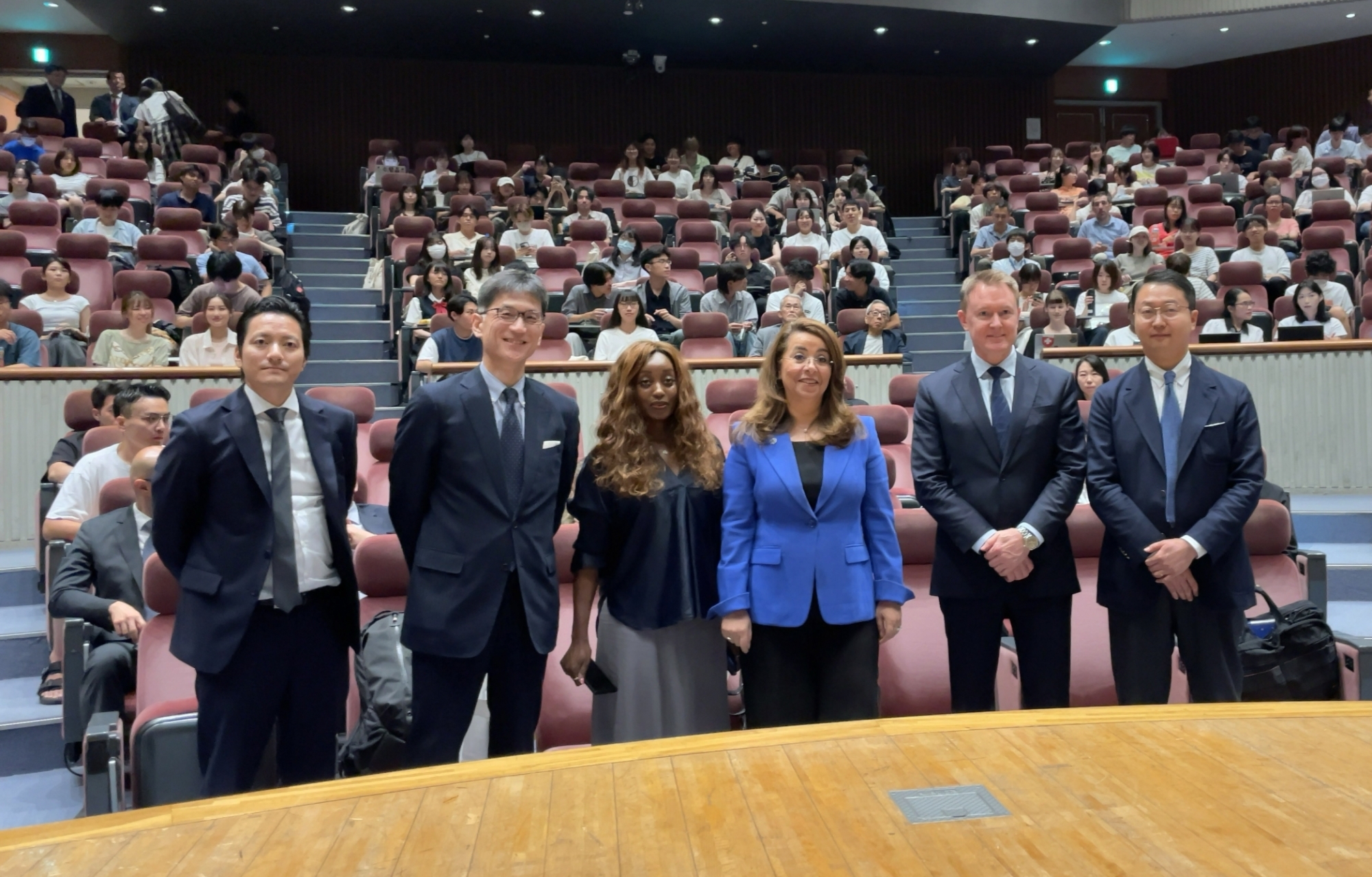The Expected Role of Youth: A Special Lecture by UNODC’s Executive Director Ghada Waly
Mon, Aug 5, 2024-
Tags
On the 5th of July 2024, the Ministry of Foreign Affairs of Japan organized a remarkable event at the Waseda University International Conference Center, Ibuka Masaru Memorial Hall. Nearly 200 attendees gathered together to listen to a special lecture by Mrs. Ghada Waly, the Executive Director of the United Nations Office on Drugs and Crime (UNODC), on the topic of the UNODC’s effort to promote the rule of law and the role youth can play in the current global situation.
Opening Remarks and Introduction of Mrs. Waly
The event commenced with a warm welcome remark by H.E. Ambassador Atsushi Kaifu, Permanent Representative of Japan to the International Organizations in Vienna. He emphasized the UNODC’s uniqueness, as the only UN organization that promotes the rule of law, addressing wide-ranging issues including drugs, organized crime, corruption, and terrorism, in a comprehensive manner with a broad network of field offices in over 150 countries, a great number of innovative programs, and a high quality of expertise.
This was followed by a brief introduction of Mrs. Waly and her accomplished career by the moderator. Born in Egypt and having studied in the US, Mrs. Waly’s career includes holding the position of Assistant Director of the United Nations Development Programme, Egypt Office, and subsequently being appointed the Minister of Social Solidarity in Egypt. She has been serving in her current role since February 2020.
Mrs. Waly’s speech
This was Mrs. Waly’s second time speaking at Waseda University. She began her speech by recalling her previous visits to Japan, making a point to describe it as a historic and strategic partner for the UN. In 2021, she attended the UN’s 14th Congress on Crime Prevention and Criminal Justice in Kyoto. She was unstinting in her praise of Japan for taking the lead in promoting multilateralism and peace, security, and the rule of law. Living in a world of uncertainty, she stated that we should recognize the importance of resilience, which Japan has demonstrated well.
In Mrs. Waly’s opinion, Japan’s success today can also be attributed to its investment in human capital. Waseda University, as a demonstrable outcome of the investment, has cultivated numerous excellent leaders and influential figures in and outside of Japan. “Ultimately,” Mrs. Waly concluded, “university builds the leaders of tomorrow.”
Yet, Mrs. Waly continued, there are immense challenges that the world is facing. According to the UNODC’s World Drug Report 2024 released in June, around 292 million people use drugs worldwide, while 64 million suffer from drug use disorders. Sharing her own experience in Egypt and Ecuador, Mrs. Waly pointed out that the issue of drug trafficking occurs around the globe, intersecting with other crimes like environmental damage and human trafficking. What’s more, it is fostered and perpetuated by the misuse of new digital technologies and artificial intelligence.
To overcome these issues, Mrs. Waly suggested, active participation by the youth is vital. She introduced a number of UNODC’s initiatives to engage young people more directly in UNODC’s work, represented by the Generation Justice (GenJust) initiative that aims to foster the younger generation’s engagement in the 15th United Nations Congress on Crime Prevention and Criminal Justice. She also recommended Waseda students to visit the UNODC’s website and follow their social media, and encouraged students to consider the UNODC when looking for work in the future.
As an ending note, Mrs. Waly reminded us of the similarity between the UN and Japan: resilience. Once again, she called for the young people of Japan to share the wisdom of Japan and the Japanese rule-of-law culture with the world, through which they can help to overcome the challenges of the future.

Following the Q&A session Mrs. Waly, third from the right, took a group picture with the audience.
Q&A session
The event then transitioned to a Q&A session with Mrs. Waly. Addressing one of the questions from the moderator regarding UNODC projects, Mrs. Waly confessed that she is proud of every single project that helps save lives and touch lives, which she considers more important than strategies and papers.
Mrs. Waly then kindly answered a few questions from the students. Regarding how her previous experiences contribute to her current work, she frankly said that every experience in her life matters. Her professional life taught her what politicians are like, and her personal life as a mother and woman has also enabled her to manage and adapt.
In response to what we, as students, can do to change the world, Mrs. Waly suggested that it is very important that we maintain the culture of the rule of law. Furthermore, for students interested in working in international organizations, she expressed her expectation for them to be global citizens who are open to challenges, keen on serving people, and possess cross-cultural communication skills.
Career seminar

Representatives answer questions from the audience
The event proceeded to a career seminar introducing the JPO (Junior Professional Officer) system, which offers opportunities for Japanese youth to gain work experience at international organizations. The JPO system is celebrating 50 years since its establishment and has benefited nearly half of the current Japanese workers at international organizations. Students who are interested in applying can go to their website and look for the job posting that best matches their specialty.
Conclusion
As an international student studying at Waseda University, I feel more than honored to have heard a lecture delivered by Mrs. Waly, a truly important figure in the world. Her insightful speech has reminded me of my privilege in having the opportunities that I have right now, but also, more importantly, our responsibility as youth to change the world through upholding the rule of law, being aware of what is happening globally, rejecting double standards, and being the “guardians of the right.”
*This article was written by the following Student Contributor:
Sun Yufei
School of International Liberal Studies














